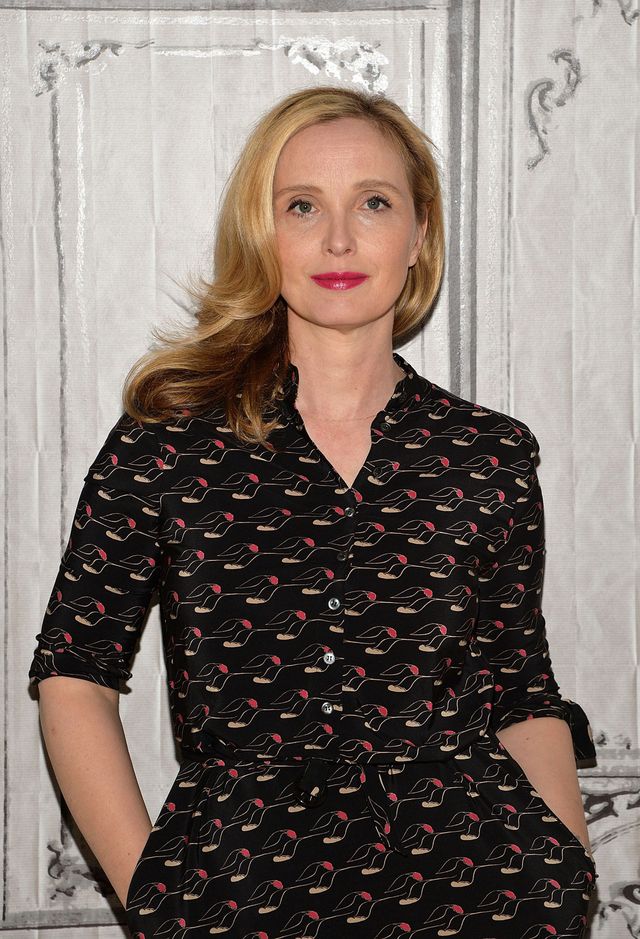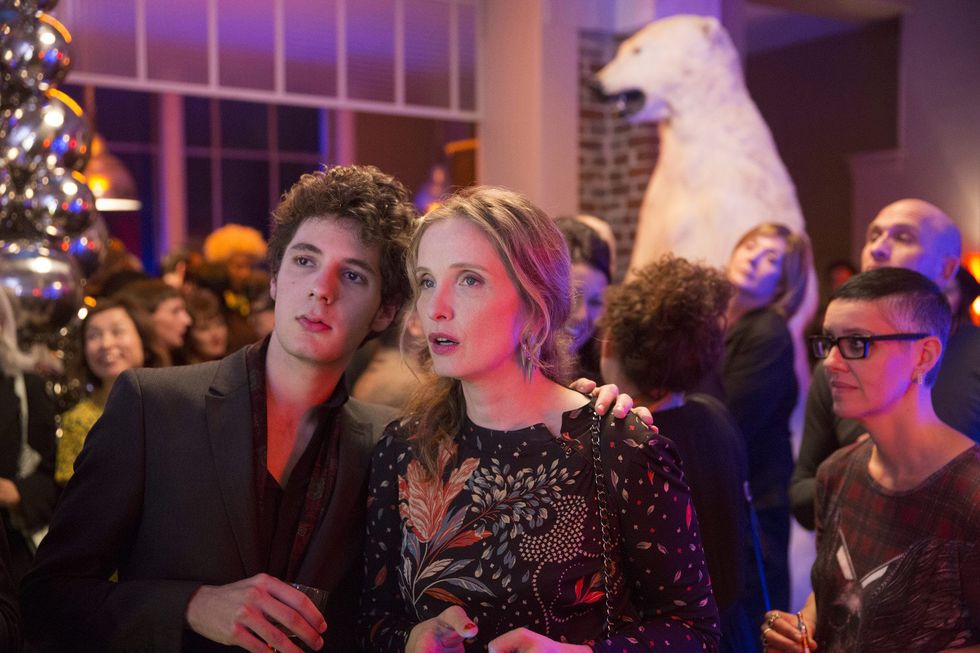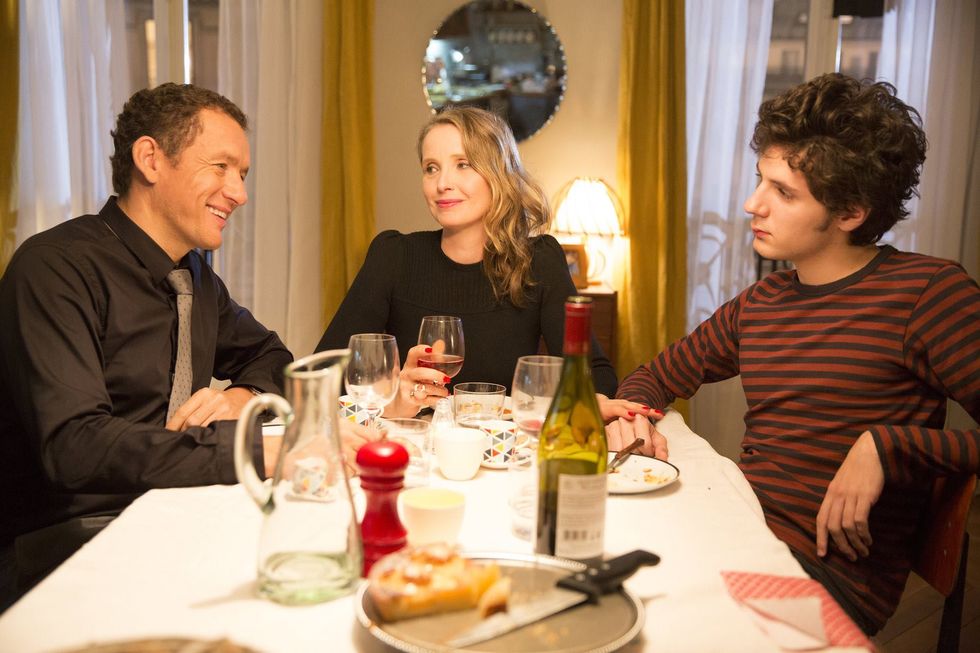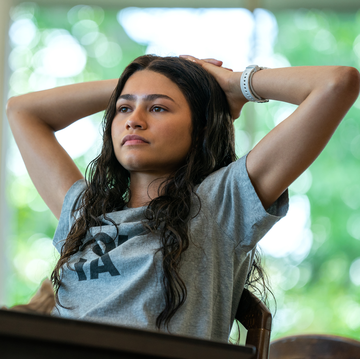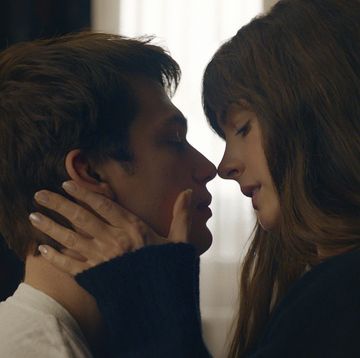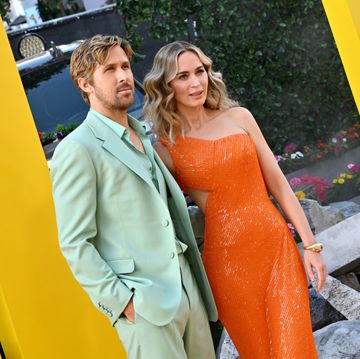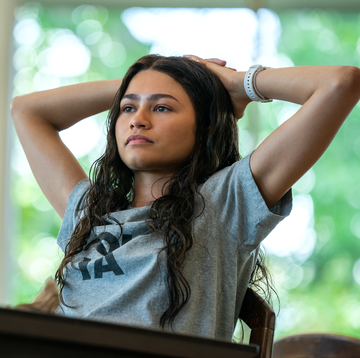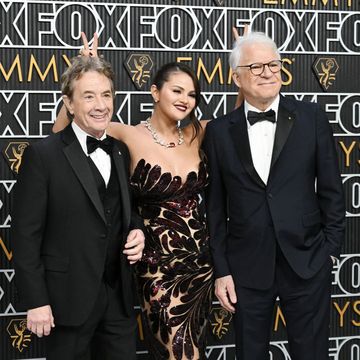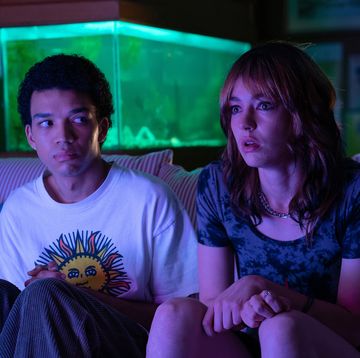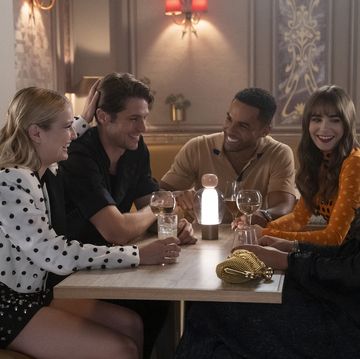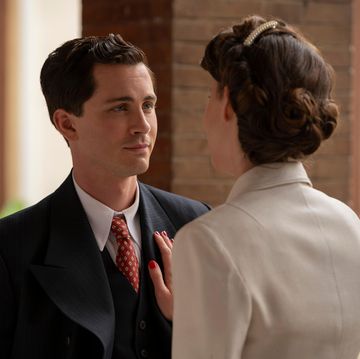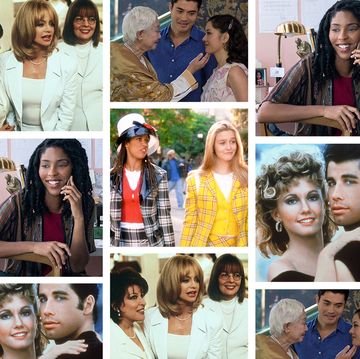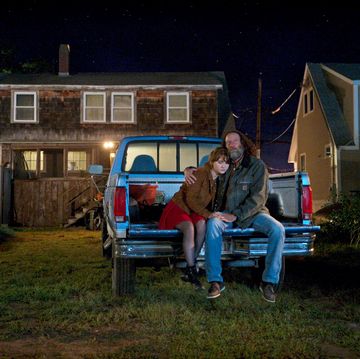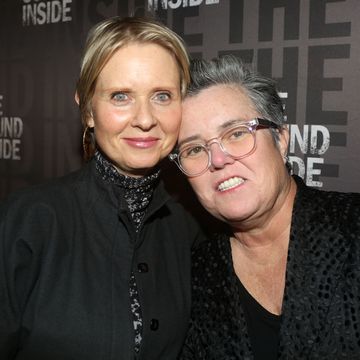Julie Delpy has been directing films for nearly 15 years. The Paris-born actress and Oscar-nominated screenwriter, who now lives in Hollywood, first got behind the camera in 2002 and has since directed several well-received films such as 2 Days In Paris, 2 Days in New York, and The Countess. Her latest directorial effort is a French dark comedy called Lolo, which Delpy also co-wrote. In the film, out Friday, the actress stars as a 45-year-old single mother whose efforts to find love again are thwarted by her sociopathic son. It's occasionally ridiculous, with some laugh-out-loud moments, and Delpy even enlisted longtime friend Karl Lagerfeld to be part of one particularly outrageous scene. Here we spoke with the notoriously outspoken director and actress about creating Lolo, learning to direct, and why Hollywood has never known what to do with her:
Where did the inspiration for Lolo come from?
It was a combination of things. The main start was women in their 40s finding love again. And then the second part was, 'How can someone destroy your life even though they seem like they should be on your side?' In this film that person is a son, but it could be a friend. It could be a boss. It could an ex-husband–not that the ex-husband should be on your side. People around you that you feel you're close to, are they really wishing you good things, you know?
Does Hollywood typically do a job good of representing women in their 40s?
Listen, I don't know because I don't see every film. Some films do portray women in their 40s well, and some other films don't. Some films are written by women, so maybe there's a little more accuracy there. The truth is I don't see a lot of movies. I see the Oscar films. I see the films that are sent to me and a few films throughout the year.
Did you write Lolo intending to star in it as a well as direct?
I knew I was going to direct it and very quickly the producers wanted me to star in it. I put my films together in Europe and it kick-starts the financing when I'm attached as an actress. It makes it easier to move forward. I have a few other films in my life where I'm not attached and for a long time it was too complicated. Now it's starting to change because other actresses actually want to work with me, which is great.
At this point do you feel sure of yourself when you direct a film?
You're never totally sure. I shouldn't say that because you have to pretend you're completely self-secure all the time. But, the truth is, I know what I'm doing. I think I know what I'm doing. This film is as I imagined. It's got goofy moments, it's a little over the top sometimes, it's funny, it has a little dark side–I knew exactly what it was going to be like. Usually I'm able to imagine something and it comes out as I imagined, more or less. To make what you have in your head, I think that's what directing is.
How did you learn to direct?
I started at film school. Very quickly I realized that directing is a combination of things: It's visual, it's directing the actors, it's telling a story. And people don't always mention this part of directing, but it's also knowing how to really edit something into something that makes sense. The fact that I did edit my first films helped. I did a film that I shot in 24 hours that was self-financed for $5,000. It was a feature called Looking For Jimmy that I shot with a bunch of friends. I spent eight months editing because we had 24 hours of footage that made no sense and I learned a lot about directing while editing that film. I learned directing by editing because I saw all the mistakes I had made. And I realized that directing actors is really important because that's what ends up on screen. The camera can move, you can make the shots, blah blah blah, but as long as the actors are good, you have something.
As someone who has been directing for a long time, what do you think about the recent conversations about how few female directors exist in Hollywood?
Of course I'm interested. I've had this opportunity to get some of my financing out of Europe, which has helped tremendously, so I'm not completely dependent on the studio system or on U.S. financing. It's always good when a distributor buys the film afterwards. But it's definitely mind-boggling. I have all sorts of funny explanations.
What's an example of one?
There's one obvious one: A lot of new American directors have had mentors who have given them advice. And some of them have had the way paved for them by huge Hollywood directors who saw a younger version of themselves. The people that are succeeding have often had a mentor of some kind. I think it makes a huge difference. I've never had help from anyone, ever. I've never had this great director who saw themselves in me, because I'm a French woman in Hollywood. Who could identify with me as a successful director in Hollywood? Nobody. And the few people who could have been mentors, instead they just stole my ideas.
What?
I tried to engage bigger writers and directors to help me out and all they did was fuck me over. Which I'm sure happens with men, too. I'm not saying it doesn't happen to male directors. And, when you transcribe this, please say I'm laughing while saying this, because I think it's very funny. But, you know, I think they realized I was never going to be able to make my World War II-Philippines movie because I'm a woman and no one would finance me. Maybe I would get the chance to be financed for a small romantic comedy, but a war movie by a 28-year-old woman about Japanese soldiers? No one was going to go for that. It's easy to just steal an idea because it's very safe.
Do you still want to make a war movie?
You know, I did for many years. I still have that project, but right now I'm focusing on what people expect from me a little more. What's funny is that with my comedies I don't believe they're my best screenplays necessarily. They're just the ones that I wrote that I knew I could get financing, you know? I believe my other films could be better, but right now they're not being made. But they will eventually. I want to be positive and say: everything I've written will get made eventually. It's just a longer, harder road. I've directed five films and I've proven that people have made money with my films–many people have made money with my films. I've proven that I'm not a complete failure. Every film has done well. It's like, 'So, okay, when do I get my deal at Warner Bros?'
